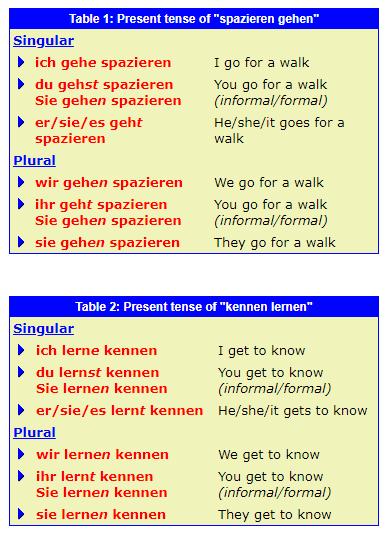After the recent German spelling reforms, many verbs that had been previously been used as separable prefixes to form compounds with other verbs are now written as separate words in the infinitive. This spelling change affects commonly used combinations such as spazieren gehen (to go for a walk), kennen lernen (to get to know), stehen bleiben (to stop), sitzen bleiben (to remain seated), liegen lassen (to leave something lying), stecken lassen (to leave something stuck).
There is however flexibility to write some of these combinations as one word when their meaning is figurative and not literal:
liegen lassen is now written in the infinitive as two words if it literally means "to leave something lying", but it can be written as one word in the infinitive (liegenlassen) if it is used to translate "to forget something".
sitzen bleiben must now be written in the infinitive as two words if it means "to remain seated", but as one word in the infinitive (sitzenbleiben) if it means "to have to repeat a year at school".
stehen bleiben is written in the infinitive as two words if it means "to remain standing", but can be used as one word in the infinitive (stehenbleiben) if used figuratively to describe a watch or clock that has stopped.
These orthographical changes do not affect the way that the present tense of such combinations is written in main clauses. Now as before, the first verb of the compound always remains in the infinitive, wheras the second verb is the one that takes present tense verb endings. This verb comes before the other in a main clause.

 英语
英语 日语
日语 韩语
韩语 法语
法语 西班牙语
西班牙语 意大利语
意大利语 阿拉伯语
阿拉伯语 葡萄牙语
葡萄牙语 越南语
越南语 俄语
俄语 芬兰语
芬兰语 泰语
泰语 丹麦语
丹麦语 对外汉语
对外汉语

